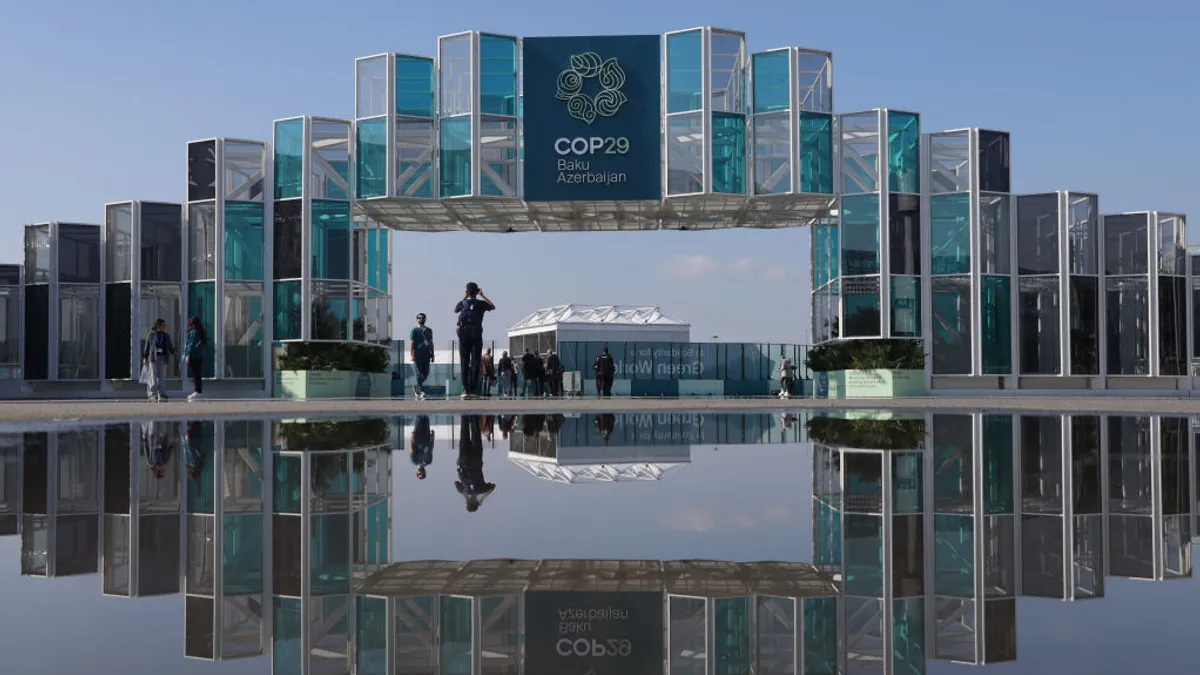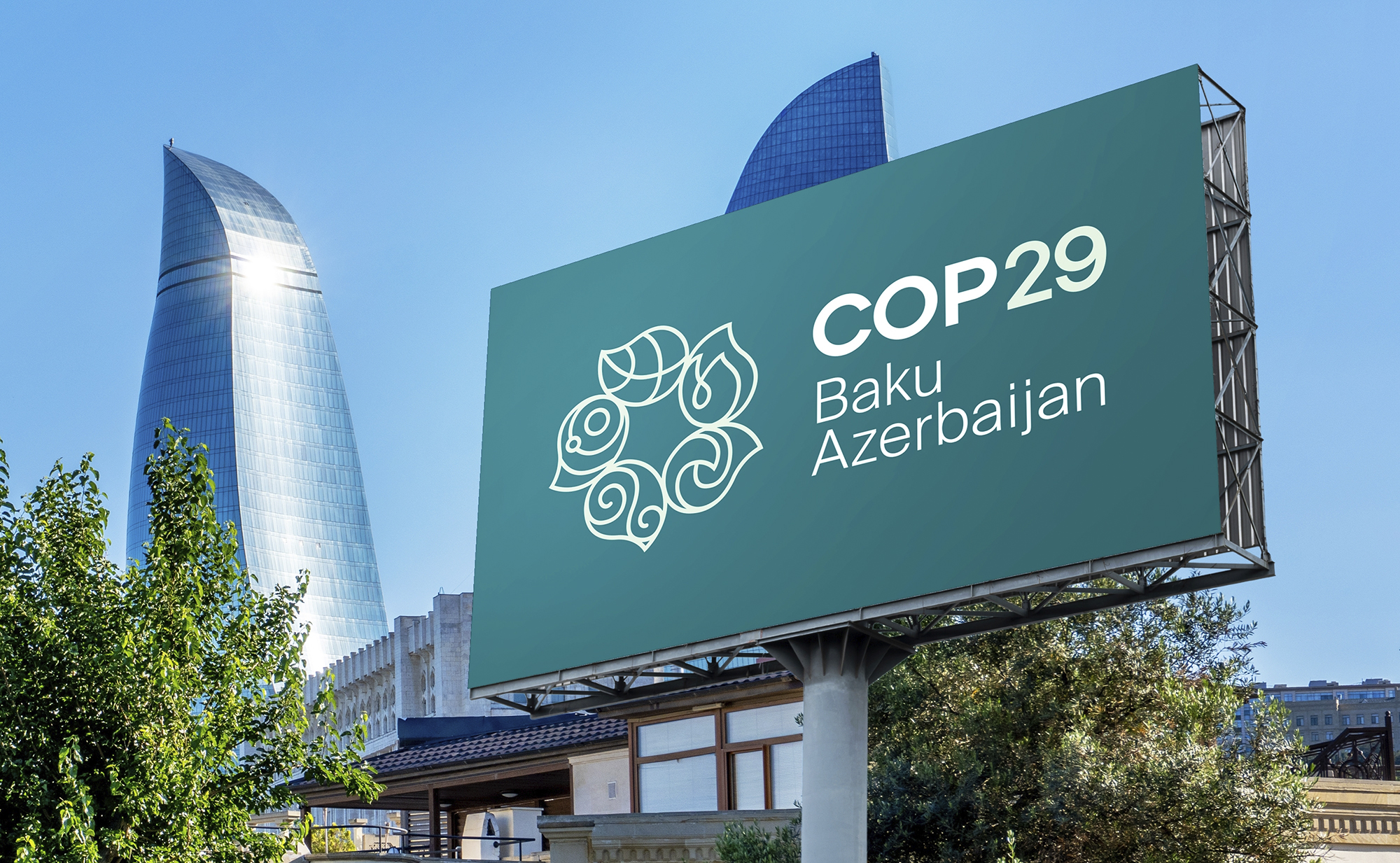
The 29th United Nations Climate Change Conference (COP29) concluded in Baku, Azerbaijan, with a significant focus on climate finance and carbon markets.
With over 65,000 participants—including world leaders, corporate executives, and civil society representatives—the summit highlighted urgent priorities for tackling climate change.
Amid projections that 2024 will be the hottest year on record, discussions at COP29 sought to address pressing issues such as climate finance mobilization, carbon market architecture, and the global transition from fossil fuels.
Here’s a closer look at the key outcomes and what lies ahead.
>> RELATED: COP29 Endorses Global Carbon Market Framework: Setting the Stage for Future Climate Action

Mobilizing Climate Finance: A Milestone, But Not Enough
One of the most anticipated discussions at COP29 revolved around establishing a new global climate finance target.
This was seen as a follow-up to the previous $100 billion annual commitment that expired in 2020.
The agreed target includes two components: $1.3 trillion annually, contributed by all actors, and $300 billion specifically from developed nations.
While this marks a significant increase from earlier commitments, it falls short of the trillion-dollar demands from vulnerable nations.
“Concrete financial support is essential for translating commitments into real-world projects,” said Pim Valdre, Head of Climate Ambition Initiatives at the World Economic Forum. “The challenge of ensuring these commitments result in impactful projects remains significant, especially for developing countries.”
Establishing a Global Carbon Market Framework
COP29 made notable strides in operationalizing Article 6 of the Paris Agreement, which focuses on carbon markets. Two key elements were addressed:
International trade of carbon credits under Article 6.2, ensuring countries can authorize transactions and track registries with transparency.
The centralized carbon crediting mechanism under Article 6.4, which now includes safeguards to protect the rights of Indigenous Peoples.
“This progress lays the foundation for functional carbon markets, critical for meeting global emission reduction targets,” said Laia Barbarà, Head of Climate Strategy at the World Economic Forum.
The supervisory body overseeing this mechanism has developed a detailed action plan for 2025, emphasizing accountability and environmental integrity.

>> In Other News: Fusion Fuel Announces Completion of QIND Acquisition and Executive Leadership Changes
Pushing for Ambitious Nationally Determined Contributions
Another highlight of COP29 was the emphasis on enhancing nationally determined contributions (NDCs), which are crucial for meeting the goals of the Paris Agreement.
Countries such as the UK and Brazil announced updated climate commitments during the summit. These include higher emissions reduction targets and steps to phase out fossil fuels.
Businesses also played an active role, advocating for more ambitious and investable NDCs to attract private-sector investment.
As the 2025 deadline for the next NDC updates approaches, nations will need to intensify efforts to align their commitments with the urgency of the climate crisis.
Energy Transition: A Sticking Point
Despite progress in some areas, COP29 faced criticism for its lack of decisive action on phasing out fossil fuels.
The absence of a binding commitment to eliminate fossil fuel subsidies is seen as a major barrier to decarbonization.
The polarization surrounding this issue highlighted the complexity of balancing energy needs with climate goals.
Looking ahead, nations will need to establish clear timelines for transitioning from fossil fuels while accelerating investments in renewable energy.
Challenges and Missed Opportunities
COP29’s outcomes underscore several unresolved challenges:
Scaling Private Investment: While the new climate finance targets are promising, mechanisms for mobilizing private-sector funding remain underdeveloped. This is especially critical for ensuring that commitments lead to tangible outcomes in developing nations.
Fossil Fuel Subsidies: Without consensus on phasing out subsidies, energy markets continue to favor fossil fuels over renewable alternatives, slowing the transition to a low-carbon economy.
Biodiversity and Climate Linkages: Unlike COP28 in Dubai, where nature-based solutions were a priority, COP29 did not adequately integrate biodiversity into its climate discussions.
The Road Ahead
The outcomes of COP29 will set the stage for further negotiations at COP30 in Belém, Brazil.
With updated NDCs due by mid-2025, countries will need to demonstrate enhanced ambition and collaboration to meet global climate goals.
Additionally, the World Economic Forum Annual Meeting in Davos will provide a crucial platform to turn COP29 agreements into actionable strategies.
Public-private partnerships will be essential to addressing the climate crisis at the necessary scale and urgency.
Building Momentum for COP30
COP30 will serve as a critical opportunity to address unresolved issues from COP29.
Hosted in Brazil, a country representing developing economies, the summit will likely emphasize equitable climate action and biodiversity conservation.
The need for a comprehensive approach—linking climate finance, energy transition, and nature-based solutions—will be paramount.
With the stakes higher than ever, the global community must work together to achieve meaningful progress.
For more details, visit the World Economic Forum’s Climate Action page or learn about upcoming developments at COP30.
Subscribe to the newsletter
Daily decarbonization data and news delivered to your inbox
Follow the money flow of climate, technology, and energy investments to uncover new opportunities and jobs.
Latest issues
-
Nebraska's 3-Plant Ethanol CCS Gamble Pays Off Big
Inside This Issue 🌽 Nebraska's 3-Plant Ethanol CCS Gamble Pays Off Big 🧊 New Evaporative Crystallizer Design Accelerates Direct-Air Carbon Capture ✈️ From SAF to Solar: DHL’s Bold Steps Toward Net...
-
SAF Output Doubled, So Why Is IATA Sounding Alarms?
Happy New Year from Decarbonfuse! As we wrap up 2025, we want to thank you for being part of the growing Decarbonfuse community. Your engagement and feedback have helped make this platform a trust...
-
$213 Per Tonne: Inside the Latest Multi-Pathway CDR Deal
Inside This Issue 💸 $213 Per Tonne: Inside the Latest Multi-Pathway CDR Deal 🏛️ Clean Energy Technologies Affiliate Vermont Renewable Gas Advances Regulatory Review 💧 Fusion Fuel’s BrightHy Soluti...
Company Announcements
-
Plug To Participate In Goldman Sachs Energy, CleanTech & Utilities Conference
SLINGERLANDS, N.Y., Jan. 06, 2026 (GLOBE NEWSWIRE) -- Plug Power, Inc. (NASDAQ: PLUG), a global leader in comprehensive hydrogen solutions for the hydrogen economy, announced its participation in t...
-
Venture For ClimateTech Accelerator Launches Applications For Cohort 6
Each Selected Startup Receives Up to $50,000 and High-Touch Support ROCHESTER, N.Y., Jan. 06, 2026 (GLOBE NEWSWIRE) -- Venture For ClimateTech (V4C), a global accelerator supporting early-stage cl...
-
MIAMI, Jan. 06, 2026 (GLOBE NEWSWIRE) -- UMeWorld Limited (OTC: UMEWF), a Delaware-incorporated company advancing enzymatic biorefining solutions for renewable fuels and functional nutrition, today...
-
ATHENS, Greece, Jan. 06, 2026 (GLOBE NEWSWIRE) -- Capital Clean Energy Carriers Corp. (the “Company”, “CCEC,” “we” or “us”) (NASDAQ: CCEC), an international owner of ocean-going vessels, today anno...